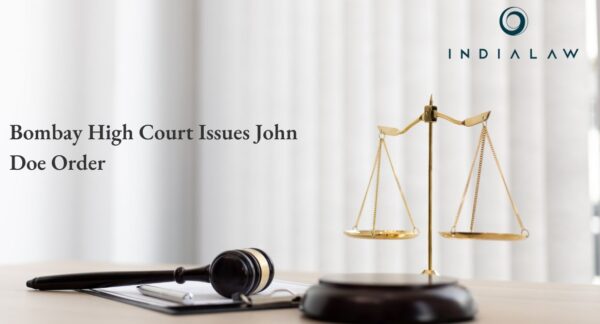Validity of non-compete clauses post termination of agreement- Bombay High Court


The Hon’ble Bombay High Court (“HC”) recently held, in a significant ruling[1] that although a non-compete clause may be valid throughout the duration of an agreement, post the termination of the agreement, such a clause would be invalid as it would result in restraint of trade which is prohibited under section 27 of the Indian Contract Act, 1872 (hereinafter “Contract Act“).
Table of Contents
Background and Factual Matrix
The instant case arises out of a contractual dispute between a distributor of engineering components Indus Powertech Inc. (hereinafter “Appellant“) and the supplier Echjay Industries Private Limited (hereinafter “Respondent“). The controversy centred on the enforcement of a non-compete clause contained within their Master Supply Agreement (hereinafter “MSA“) under Clause 3 which obligated both the parties not to individually approach specified customers or suppliers for twenty-four (24) months after the date of termination of the agreement. On 27th February, 2023, the Respondent invoked its right of termination as mentioned under Clause 15 of the MSA. The Respondent, thereafter filed a Commercial Arbitration Petition under Clause 3 of the MSA to seek injunctive relief. The key relief that was sought was restraining the Appellant from procuring forgings and engineering components from RKFL, an Indian entity. The injunctive relief was granted by the learned Single Judge who restrained the Appellant from procuring components from RKFL.
The present appeal has been filed by the Appellant challenging the said order of injunction, that restrains their purchase activities with RKFL, based on the non-compete provisions in the MSA between the parties as it stands to be a restraint of trade following section 27 of the Contract Act.
Contentions raised by the parties
The Appellants contented that the restrictive covenant engrafted in Clause 3 of the MSA was intended to be operative only during the subsistence of the agreement. On its termination, the same is rendered inoperative by virtue of law as it is void following Section 27 of the Contract Act. They further contended how the injunctive relief impugned here restrains the appellant’s legitimate commercial activities. Although this challenge was not raised during the initial section 9 of the Arbitration and Conciliation Act, 1996 proceedings, the issue at hand being a pure question of law pursuant to the interpretation of the MSA, allowed itself to be raised in an appeal. In pursuance of which the appellant further placed reliance on the judicial dictum of Rajendra Shankar Shukla & Ors etc. vs. State of Chattisgarh & Ors[2], contending how the injunction order was liable to be set aside as it allowed post-contractual restraints on trade and business activities despite the fact that the MSA had been terminated, and consequently, was legally unsustainable.
The Respondent contested the appellant’s contentions arguing that the Appellant was prevented from challenging the validity of Clause 3 of the MSA on appeal since they had neglected to challenge this issue in the initial proceedings. Furthermore, they highlighted the persistence of commercial interactions, as indicated by the Appellant’s issuance of purchase orders beyond the 180-day timeframe, to illustrate an enduring contractual relationship between the parties.
Court’s Observations
The Court decreed that questions of law are susceptible to being considered by the appellate forum, although not presented before the court of first instance. However, the Court held that factual questions requiring an investigation inquiry would be excluded from appellate scrutiny unless presented in the initial proceedings. To further bolster their findings, the Court applied the precedential authority established in the case of Rajendra Shankar Shukla & Ors etc. vs. State of Chattisgarh & Ors[3]. and Greater Mohali Area Development Authority & Ors. v. Manju Jain & Ors[4].
Furthermore, the Court held that though non-compete covenants remain valid during the operation of the contract but their post-termination enforceability gets vitiated under Section 27 of the Contract Act, since it prohibits restraint of trade. The HC, thus, held that such restrictive covenants could not be allowed to survive injunctive relief after the termination of the contract and thus justified intervention under Section 37 of the Arbitration and Conciliation Act, 1996 and set aside the impugned judgement of the Arbitration Petition, allowing the appeal.
Author’s opinion
In the opinion of the author, the present judgement stands to be noteworthy as it highlights the Court’s willingness to consider a pure question of law at the appellate stage and highlighting the clear distinction in relation to non-compete clauses being valid during the agreement but void post-termination of the agreement. The judgment clearly upholds the legislative intent of Section 27 of the Indian Contract Act highlighting how free trade prevails over contractual restrictions.
[1] Indus Powertech Inc vs Echjay Industries, 2024 SCC OnLine Bom 3349.
[2] Rajendra Shankar Shukla & Ors etc. vs. State of Chattisgarh & Ors. Etc, 2015 INSC 532.
[3] ibid.
[4] Greater Mohali Area Development Authority & Ors. v. Manju Jain & Ors, (2010) 9 SCC 157.




